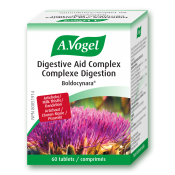Like anything, balance is key and I'm not saying to ditch alcohol completely- although if you do, your body might thank you for it. One of the bodily systems affected by alcohol is the digestive system. It affects digestion and nutrient absorption by damaging the cells lining the stomach and intestines and disabling transport of some nutrients into the blood. Let's see more in detail how alcohol actually affects digestion.
The effect of alcohol on the body
Typically, alcohol is a waste product that the body tries to excrete. Even a tiny bit of alcohol has an effect on the body's systems. If you drink more than the body is able to process, you begin to feel intoxicated as the alcohol level builds up in the bloodstream and is distributed throughout the body. Drinking too much on a single occasion or over time can have damaging effects on your health. It affects the body in different ways and most of all, major organs are touched by the consumption of alcohol.
- Brain: It affects the brain and its ability to communicate through its pathways. This interference can affect your mood and behavior, making it hard to think clearly and move with coordination.
- The heart is affected by alcohol too. It can lead to cardiomyopathy (which is a stretching and drooping of the heart muscle), arrhythmias (irregular heartbeat), stroke and high blood pressure.
- Liver: We all know that the liver is affected by alcohol intake leading to inflammation such as steatosis, fatty liver, fibrosis, cirrhosis and alcoholic hepatitis
- Pancreas: Alcohol also causes the pancreas to produce toxic substances that can eventually lead to pancreatitis.
- Stomach: Drinking affects the stomach with distress such as bloating, gas and painful ulcers. The immune system can be weakened by alcohol consumption, making it a much easier target for disease.
- Skeletal and muscular system: Long-term alcohol use may prevent your body from keeping your bones strong. This habit may cause thinner bones and increase your risk for fractures if you fall. And fractures may heal more slowly. Drinking alcohol may also lead to muscle weakness, cramping, and eventually atrophy.
How do we digest alcohol
Alcohol is not digested like other foods. Once alcohol is swallowed, it travels down the esophagus into the stomach and the small intestine. It avoids the normal digestive process and goes right into the bloodstream. About 20 percent of the alcohol consumed is absorbed in the stomach, and about 80 percent is absorbed in the small intestine.
Alcohol is metabolized by the liver, where enzymes break down the alcohol. In general, the liver can process one ounce of liquor (or one standard drink) in one hour. If you consume more than this, your system becomes saturated, and the additional alcohol will accumulate in the blood and body tissues until it can be metabolized. This is why pounding down shots or playing drinking games can result in high blood alcohol concentrations that last for several hours.
Does alcohol help digestion?
It's not the alcohol in drinks that promote digestion. On the contrary, alcohol is known to impede gastric emptying of the stomach. The nerves in the abdomen that are important for the transport of food are blocked by it. That being said, herbal liqueur before a meal can stimulate the mucous membranes of the stomach to release acid. But it's not the alcohol doing this, it is more so attributed to the bitter substances contained in them. Bitter substances in non-alcoholic beverages like espresso also have this similar effect.
To reduce the risk of damage of alcohol on the digestive system and be able to enjoy an occasional drink, you can stick to the recommended levels of safe alcohol consumption, or one drink per day for women and those older than 65 years of age and two drinks per day for men; one drink would be classified as a standard beer, a glass of wine, or a standard shot of spirits. You should never drink on an empty stomach and ensure you maintain a balanced diet that provides an array of nutrients.
How to help digestion
If your digestion is bothering you and you want to feel better, there are different ways to enhance your digestive health. We've seen how alcohol acts on our digestive system, now let's see what remedies and certain foods can help ease and optimize your digestion.
- Fermented foods: These foods are preserved using an age-old process that boosts the food's shelf life and nutritional value and can give your body a dose of healthy probiotics, which are live microorganisms crucial to healthy digestion. There is a variety of good fermented foods to choose from, such as; kimchi, sauerkraut, kombucha, miso, yogurt, kefir, tempeh and more. You can also consider Molkosan, a lacto-fermented whey.
- Drink more water: it's important to stay hydrated for the body to function optimally. It is something we all know, but oftentimes lack of doing. Drinking enough water is crucial in having a good digestion. It keeps the food you eat moving along through your intestines and it keeps your intestines smooth and flexible, too.
- Natural remedies can help support a healthy digestive system and relieve some discomfort related to digestion. For example, A.Vogel's Digestive Aid Complex can be a great way to calm digestive disturbances such as: heartburn, acid reflux, excess burping, bloating, nausea, feeling of abnormal or slow digestion or early satiety. It is a wonderful blend of herbs such as milk thistle, artichoke, boldo and dandelion.
Over a 6 week period, an open, multi-centre clinical study was performed to test both the efficacy and safety of Digestive Aid Complex with just two tabs per day. According to patients' assessment the frequency of their digestive disorders was reduced by 78% and the impact on their daily routine was reduced even further by 81%.
References:
https://www.niaaa.nih.gov/alcohols-effects-health/alcohols-effects-body
https://www.conehealth.com/services/behavioral-health/7-things-drinking-alcohol-does-to-your-body/
https://www.ncbi.nlm.nih.gov/pmc/articles/PMC543875/
https://alcoholrehab.com/alcoholism/effects/alcohol-effects-on-the-digestive-system/
Bommer S, Klein P, Suter A. A multicentre open clinical trial to assess the tolerability and efficacy of Boldocynara®, a traditional herbal preparation for functional digestive disorders. Planta Med
2013; 79 - PB11





